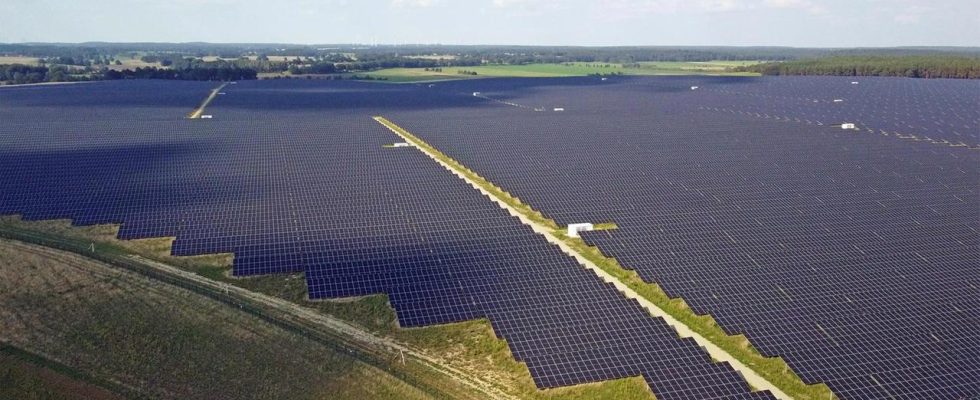background
In order to achieve the climate goals, more energy must be generated from solar power. This requires, among other things, arable land – which often leads to conflicts. But compromises are possible.
There is a gold rush atmosphere in the solar industry. In order to achieve Germany’s climate goals, the federal government wants to triple the pace of expansion of photovoltaics to 22 gigawatts per year by 2026. Half of the solar systems will be built on roofs and the other half on open spaces.
In addition to sealed areas, agricultural land is also needed for this: according to calculations by the Braunschweig Thünen Institute, probably around 1.7 percent of the area currently used for agriculture. That’s 280,000 hectares, an area slightly larger than Saarland.
The decision lies with communities
Depending on the efficiency of the panels installed, the land requirement can increase to up to four percent of agricultural land. The decision as to which areas can be built on with solar panels rests with the municipalities. They are overwhelmed with inquiries from investors looking for suitable space all over Germany.
But what is supposed to promote the expansion of renewable energies also has its downsides. The hunt for possible usable land increases the competitive pressure on agricultural land, drives up rental prices and causes fertile fields and meadows to disappear under dark solar modules.
Trade tax and rental income are attractive
Community representatives are faced with the difficult question: Should food continue to be grown or should electricity be generated instead? Solar systems are attractive for municipalities because they bring income – for example through trade tax – into the municipal coffers.
Farmers and landowners benefit from higher rental income. Because the “solar harvest” is more lucrative than growing wheat, corn or rapeseed. But the expansion plans are often met with skepticism among villagers. They fear that they will have solar parks under their noses but will not receive any of the proceeds themselves.
Residents feel they are not sufficiently informed
In the community of Pronstorf near Lübeck, for example, residents fought a referendum against a solar park and achieved a temporary ban on construction. There are also disputes in Mecklenburg-Western Pomerania, which is particularly attractive for investors with its huge arable land: for example in Strittense, a district of Anklam.
One of the largest solar parks in the region is planned there, covering around 150 hectares. The proponents argue that there will be millions in revenue for the city treasury and hope to attract new businesses to Anklam through “green” electricity. But the residents of Strittense feel ignored and inadequately informed. They fear being surrounded by solar modules and reject the project right at their entrance to town.
They fought back with demonstrations and collecting signatures. The majority of the Anklam city council still voted in favor of the photovoltaic system. The approval process is ongoing – construction is expected to begin at the end of 2024.
Citizens’ energy parks under discussion
These conflicts are symptomatic of the conflicts in many regions. They could defuse so-called citizen energy parks, from which communities and residents benefit more, for example through reduced electricity prices. However, this requires that local politicians familiarize themselves with the difficult subject and involve citizens in decisions.
In Wöbbelin near Schwerin there is already a community energy park on community-owned land. “Implementing the system was not easy,” said Mayor Viola Tonn (independent). Only with a lot of persuasion, an energy fair and other events was it possible to win the population over.
However, volunteer community representatives often face financially strong investors with experienced legal departments and have to deal with reports and complicated contracts. Federal Economics Minister Robert Habeck (Greens) said this NDR, he relies on advice and guidelines. “Taking this away from municipalities now, as has often happened with wind planning,” says Habeck, “seems to me to be too early or not right at all when it comes to photovoltaics.”

